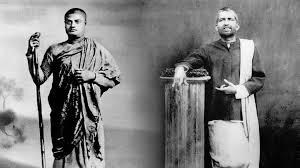INDIA: REALIZING ITS DREAM OF VISHVA-GURU (विश्व-गुरु)
India is now officially the world’s fastest growing economy.
Economic growth is incomplete and unsustainable if it is not rooted in strong moral character and spiritual awakening of our people.
We cannot become strong merely by overcoming our weaknesses; we will only become less weak! To become strong, a different game plan is required—a game plan that makes our strengths shine brighter and our weaknesses irrelevant.
We have to move from skills to dispositions—to skill-sets of integral competencies.
We have to develop our youth in all their vital dimensions—physical, mental, emotional, moral, and spiritual. The education has to start very early: right at the cradle, with stories that ignite passion for the highest achievement, values, meaning, purpose, and contribution—सर फ़रोशी की तमन्ना…(a deep desire to sacrifice for the highest good)
To achieve that, our schools have to become incubators of character and spirit.
To become a world-leader (Vishva-guru), India needs strong roots and agile wings.
You cannot win the competition by borrowing their ideas.
India has to leverage its own sages (such as Vivekananda and Gandhi) and strategists (such as Chanakya-Kautilya and Vidur). We have to put their wisdom to practice. As an old adage says: A wise person is one who acts upon his conviction’ (yah kriyavān sah panditaḥ).
The ideal of a teacher in our Vedas is presented as follows: svayam ācarati, parān ācārayati, iti ācāryah: S/he who himself “lives” the teachings and inspires others to live the teachings.
This requires 3 C’s: Clarity, Courage, and Conviction.
We need both gifted and dedicated teachers.
We need to leverage our own home-spun role-models.
Teaching is the mother of all professions—all professionals such as scientists, doctors, engineers, lawyers, musicians, journalists, managers, leaders, and so forth—every professional and every entrepreneur is fashioned in the classroom by teachers. We need to attract our best and brightest minds to this profession. We need to make teaching elegantly lucrative and honorable.
A country which aspires to become Vishva-guru has to learn to honor its own gurus first!
In the Vedas, guru is defined as:
ग़ुकार अन्धकरस्य रुशब्दः तन्निरोधकः |
अन्धकार निरोदत्वात् गुरुरित्यभिधेएयते ||
ġukāra andhakarasya ruśabdaḥ tannirodhakaḥ |
andhakāra nirodatvāt gururityabhidheeyate ||
The Sanskrit word ‘guru’ is composed of two words: gu + ru.
‘Gu’ strands for darkness or ignorance and ‘ru’ stands for that which removes the darkness or ignorance.
Hence, a guru is one who removes the darkness of ignorance with the light of knowledge.
Sharp vs. Subtle Mind: तीक्ष्ण एवं सूक्ष्म बुद्धि ?[1]
Above all, to become world leaders, we need to develop both sharp and subtle mind.
A sharp mind deals with the analysis of facts; a subtle mind deals with their synthesis. A sharp mind is orderly and structured, a subtle mind is free-flowing and nimble. A sharp mind spans boundaries, a subtle mind revels in orbits. A sharp mind is hurried and worried, a subtle mind is calm and collected.
A sharp mind seeks pleasure, a subtle mind knows contentment. A sharp mind is impatient, a subtle mind is gracefully paced. A sharp mind is intense, a subtle mind is authentic. A sharp mind believes in control, a subtle mind in autonomy. A sharp mind pre-plans its operations, a subtle mind thrives in the spirit of the moment. A sharp mind prepares scientists and engineers, a subtle mind fashions seers and poets.
A sharp mind knows power, a subtle mind knows peace.
A sharp mind is proud, a subtle mind is humble.
The first introductory text that is taught to the students desirous of learning Sanskrit is called Hitopadesha (literally, good counsel). On its very first page, it extolls humility as key harbinger of learning: “Learning bestows humility” (vidayā dadāti vinyam).[2]
Finally, instead of indulging in mindless political and religious debates, we should try to preserve our cultural heritage, the best in our language and literature. There is an inseparable relation between language and culture. Likewise, Sanskrit and Sanskriti are inseparable, as Dr. Rajiv Malhotra rightly says in his new book, Battle for Sanskrit.
I will like to close with a couplet from the great Sufi poet, Bulleh Shah:
तूँ किओं डावें मसजिद मेरी, मैं किओं डावां मंदिर नूँ
आजा दोवें बह के पढ़िये, इक दूजे दे अंदर नूँ
Why should we demolish each other’s places of worship?
Let’s sit together and study the inner Self of each other!
Self-Knowledge flowering into Selfless-Service is the theme of this author’s book, Seven Habits of Highly Fulfilled People: Journey from Success to Significance.
[1] © 2016 Satinder Dhiman
[2] vidyā dadāti vinayam, vinayādyāti pātratām ।
pātratvāddhanamāpnoti, dhanāddharmam tatah sukham ।।
Education gives humility;
humility gives qualification;
from qualification one gets wealth;
from wealth one gets the opportunity to be righteous;
from righteousness one gets happiness.


Recent Comments